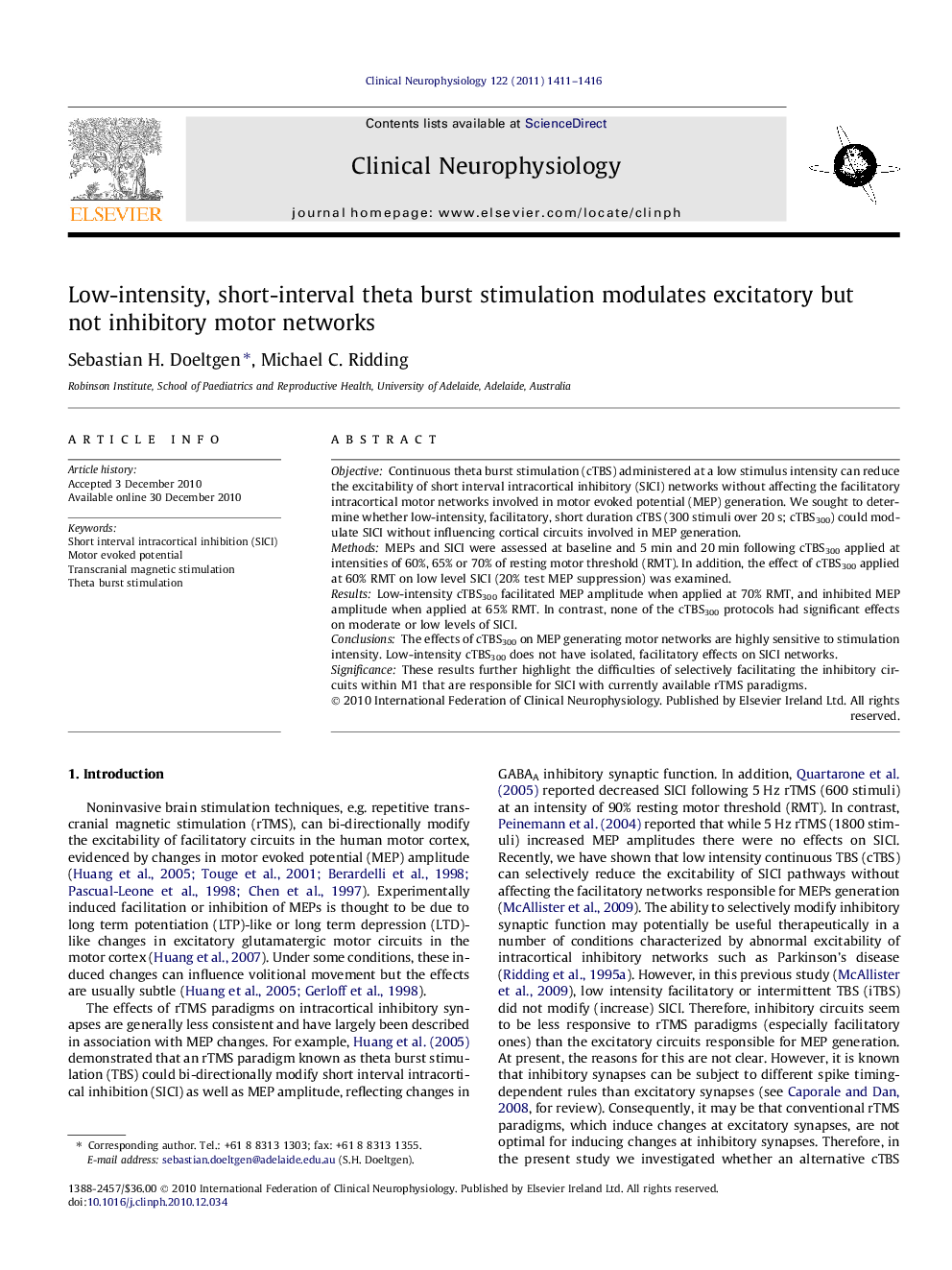| Article ID | Journal | Published Year | Pages | File Type |
|---|---|---|---|---|
| 3044786 | Clinical Neurophysiology | 2011 | 6 Pages |
ObjectiveContinuous theta burst stimulation (cTBS) administered at a low stimulus intensity can reduce the excitability of short interval intracortical inhibitory (SICI) networks without affecting the facilitatory intracortical motor networks involved in motor evoked potential (MEP) generation. We sought to determine whether low-intensity, facilitatory, short duration cTBS (300 stimuli over 20 s; cTBS300) could modulate SICI without influencing cortical circuits involved in MEP generation.MethodsMEPs and SICI were assessed at baseline and 5 min and 20 min following cTBS300 applied at intensities of 60%, 65% or 70% of resting motor threshold (RMT). In addition, the effect of cTBS300 applied at 60% RMT on low level SICI (20% test MEP suppression) was examined.ResultsLow-intensity cTBS300 facilitated MEP amplitude when applied at 70% RMT, and inhibited MEP amplitude when applied at 65% RMT. In contrast, none of the cTBS300 protocols had significant effects on moderate or low levels of SICI.ConclusionsThe effects of cTBS300 on MEP generating motor networks are highly sensitive to stimulation intensity. Low-intensity cTBS300 does not have isolated, facilitatory effects on SICI networks.SignificanceThese results further highlight the difficulties of selectively facilitating the inhibitory circuits within M1 that are responsible for SICI with currently available rTMS paradigms.
